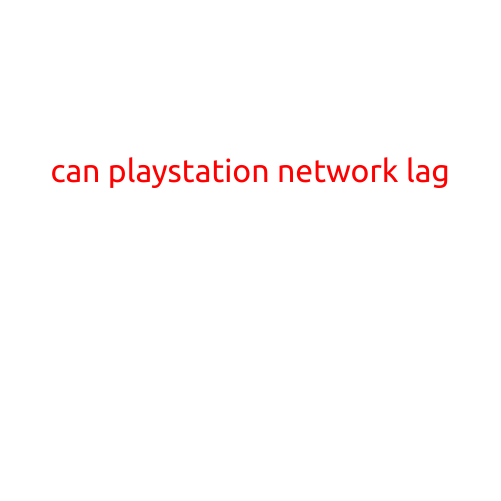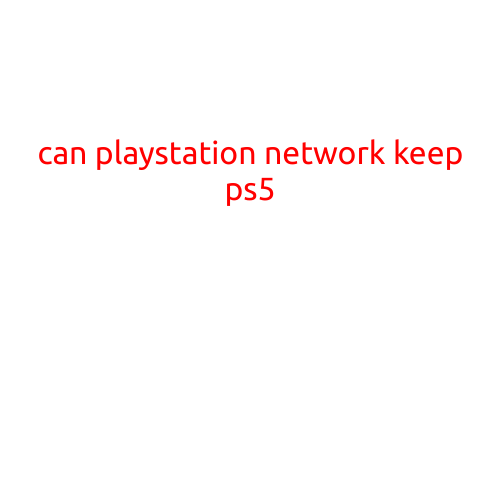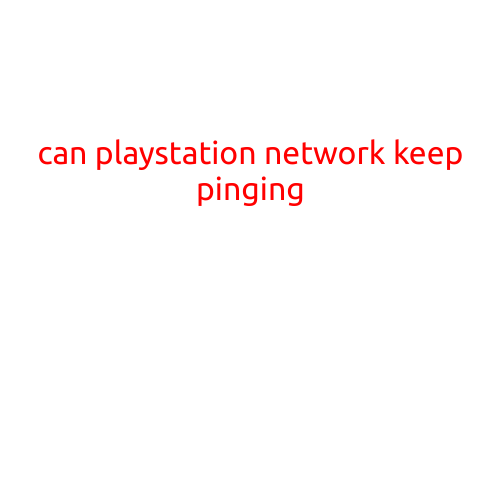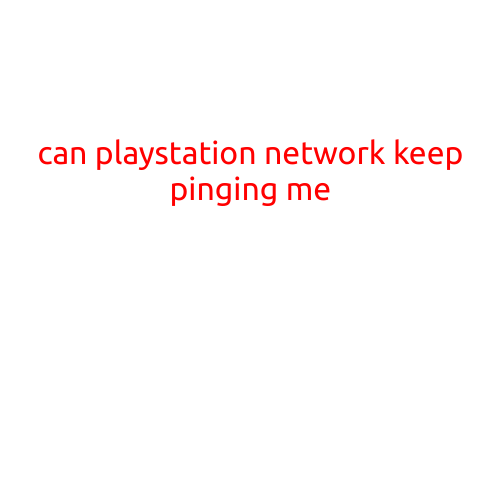
Can PlayStation Network Lag Ruin Your Gaming Experience?
The PlayStation Network (PSN) is a vital part of the PlayStation gaming experience, allowing players to connect with friends, download games, and access a wealth of online content. However, even the most reliable networks can experience lag from time to time, leading to a frustrating gaming experience. In this article, we’ll explore the causes of PSN lag and offer some tips on how to minimize its impact on your gaming experience.
What causes PSN lag?
There are several reasons why PSN lag might occur:
- Network Congestion: When too many users are connected to the PSN at the same time, it can cause network congestion, leading to slower download and upload speeds.
- Server Maintenance: PlayStation may perform routine server maintenance, which can cause temporary outages and lag.
- Hardware Issues: Faulty or outdated hardware, such as routers or modems, can cause connectivity issues and lag.
- Internet Service Provider (ISP) Issues: Problems with your ISP, such as high latency or packet loss, can impact your PSN connection.
- PSN Server Issues: PSN servers may be experiencing technical difficulties, causing lag and disconnections.
Symptoms of PSN lag
If you’re experiencing PSN lag, you may notice the following symptoms:
- Slow loading times for games and apps
- Disconnections from online multiplayer games
- Laggy gameplay with slow response times
- Difficulty connecting to the PSN in the first place
Tips to minimize PSN lag
While PSN lag can be frustrating, there are several steps you can take to minimize its impact on your gaming experience:
- Check your Internet Connection: Ensure your internet connection is stable and fast. Run a speed test to check your upload and download speeds.
- Update Your Router and Modem: Make sure your router and modem are up to date to ensure you’re getting the fastest speeds possible.
- Use a Wired Connection: Wired connections are generally more stable than wireless connections, so try using an Ethernet cable to connect your PS4 to your router.
- Restart Your Router: Sometimes, a simple reboot can resolve connectivity issues. Try powering off your router and waiting 30 seconds before turning it back on.
- Check for PSN Server Issues: If you’re experiencing persistent lag, check the PlayStation website for any server issues or maintenance schedules.
- Consider a PlayStation Plus Subscription: A PlayStation Plus subscription can help reduce lag by providing faster priority access to PSN servers.
- Avoid Downloading Large Files: Avoid downloading large files, such as games or updates, when you’re in the middle of a gaming session.
- Limit Multipathing: Avoid playing games that require a lot of bandwidth, such as multiplayer games, at the same time as other data-intensive activities, such as streaming or video conferencing.
Conclusion
PSN lag can be a frustrating experience, but by understanding the causes and taking steps to minimize its impact, you can continue to enjoy your favorite games without interruptions. By following the tips outlined in this article, you can help ensure a stable and lag-free gaming experience on the PlayStation Network.





